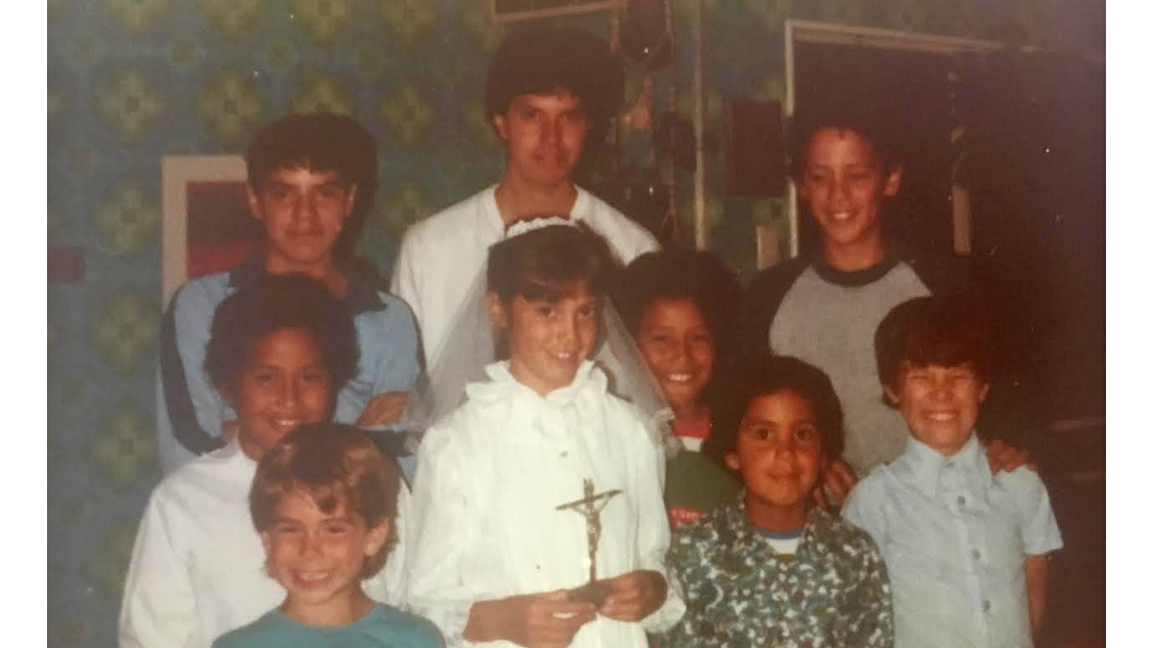Miriama Kamo is one of New Zealand’s foremost broadcasters. She looks back on her book-loving childhood, and that time she tried to get Witi Ihimaera to adopt her.
It was a watershed, Pounamu, Pounamu: the book that was the growing up of me as a reader. I’d have been 12 or 13. I read it and read it and read it. I loved ‘The Makutu on Mrs Jones’, though I was also terrified of it. What black magic did that crazy old koro use to get Mrs Jones to stay with him? At that age, I didn’t understand the elegance of the story.
I loved those stories so much that I wrote a collection of my own short stories in an old exercise book, badly mimicking Witi Ihimaera’s lyrical, inimitable style. I probably still have that tattered tome somewhere. I remember that two of my stories ended with the handy cliche ‘…and it was then that, finally, he cried.’
When I think of Pounamu, Pounamu, I still feel transported, as if I’m running through dry, yellowed grass, standing on the sidelines of a loud rugby game, having my head shucked by an older cousin, and being growled by a loving Nanny.

When I was about 15 years old, my mother took me to a Witi Ihimaera reading. I was in his thrall. He read his poem ‘Dinner with the Cannibal’ and I immediately developed an enormous crush on this gentle speaking, intelligent, handsome man who could spin such evocative images. Apart from my crush on the man in the Europa petrol ads, this was my first crush on a man, rather than a boy. Mum introduced me afterwards and I really don’t remember if I said anything. I do know afterwards I was thinking how lovely and fatherly he seemed. This was a salve when I later discovered that he was gay and therefore would not marry me.
Many years later, I interviewed Witi for a story around the filming of Whale Rider. I was so nervous and excited. Plus, I’d discovered that Ihimaera meant Ishmael, which provided what I thought was a clever link between Moby Dick and Whale Rider. Witi graciously considered my brilliant discovery, but disappointingly wasn’t sufficiently impressed to want to adopt me.
That was the power of Pounamu, Pounamu for me. The stories were transporting, but so too was the writer. This clever wordsmith who taught me, through his art, to seek excellence in other writers. Witi’s writing forged a path to other excellent writers. His iconic collection of short stories was the gateway book to NZ literature. As a teen, I read Janet Frame, Katherine Mansfield, Frank Sargeson. I have images clattering about as I write their names: nervous brave Janet on a train; Katherine Mansfield’s brilliant but brittle society gatherings betraying an anxious writer; Sargeson’s wiry, muscular men, his admiration and self awareness etched in every detail.
I’d spit out books like a tennis ball machine, barely registering their titles.
As I recall these influences, I realise how important Kiwi writing was to my formation as a reader. What led the way to Pounamu, Pounamu? Well, yes, there were myriad young reader books. I was a total bookworm. I was compelled to read. I’d spit out books like a tennis ball machine, barely registering their titles. I stopped most days at the library on my way home from school. I loved Enid Blyton, for example; I suspect I’ve read most of her works. But, as a family we loved comic strips: Andy Capp (good lord, I never knew how inappropriate it was), The Wizard of Id, Blondie, Charlie Brown. And we had every Footrot Flats book.
My parents had overly satisfied bookshelves, tonnes of books weighed down every shelf, and every room had at least one shelf. But we never bought books new; we got them all from libraries, from second hand sales, from friends and family. Except for Footrot Flats. When a new edition hit the shelves, it was immediately earmarked for whomever had the next birthday. Or, occasionally, my parents would splash out and buy it new. New! It’d make its way hierarchically through the family. Even when I was too young to understand many of the jokes, there was no mistaking the appeal of Dog. Funny, grumpy, wise, wry, loyal Dog.
It validated the country we live in. It said ‘aren’t we funny, silly, angry, brave, loving, and wanting’.
Maybe this laid the path to Pounamu, Pounamu, capturing so hilariously the desperation and satisfaction of farming life, then so central to the Kiwi self-image. Pounamu, Pounamu evoked another way of life, equally familiar, actually more familiar. It spoke to my own childhood, packed full of joking cousins, big family meals, the childish want for more, to fit in, to make people proud, the sense of wanting approval while expecting rejection from the world. But more than that, it validated the country we live in. It said ‘aren’t we funny, silly, angry, brave, loving, and wanting.’ And at 12 or 13, the age that we look to understand who we are and how we fit in, it told me it was okay to be all those things.



